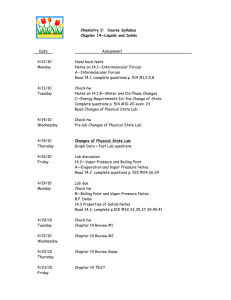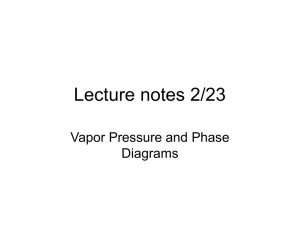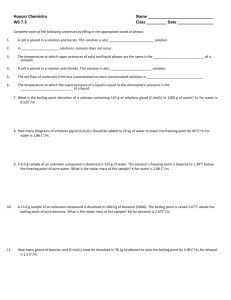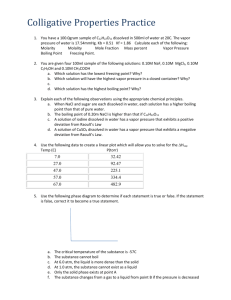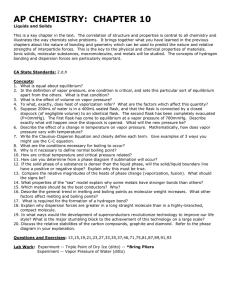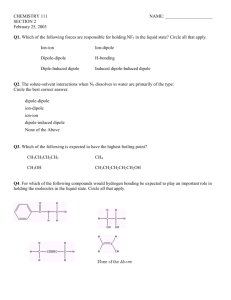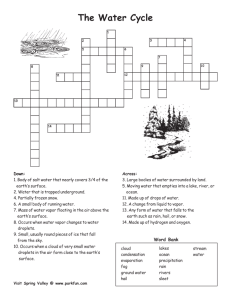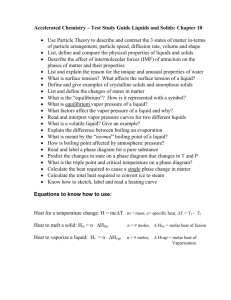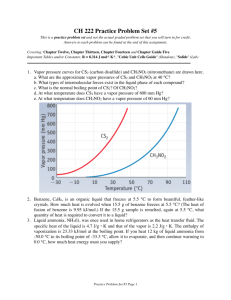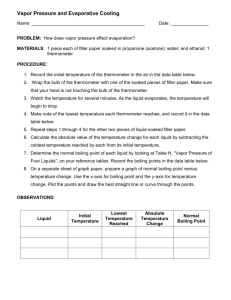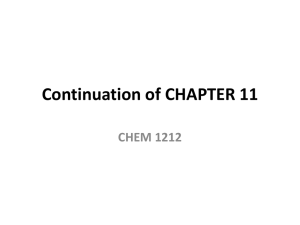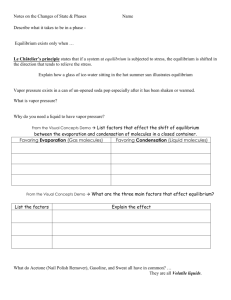VP-Problem Set 1
advertisement
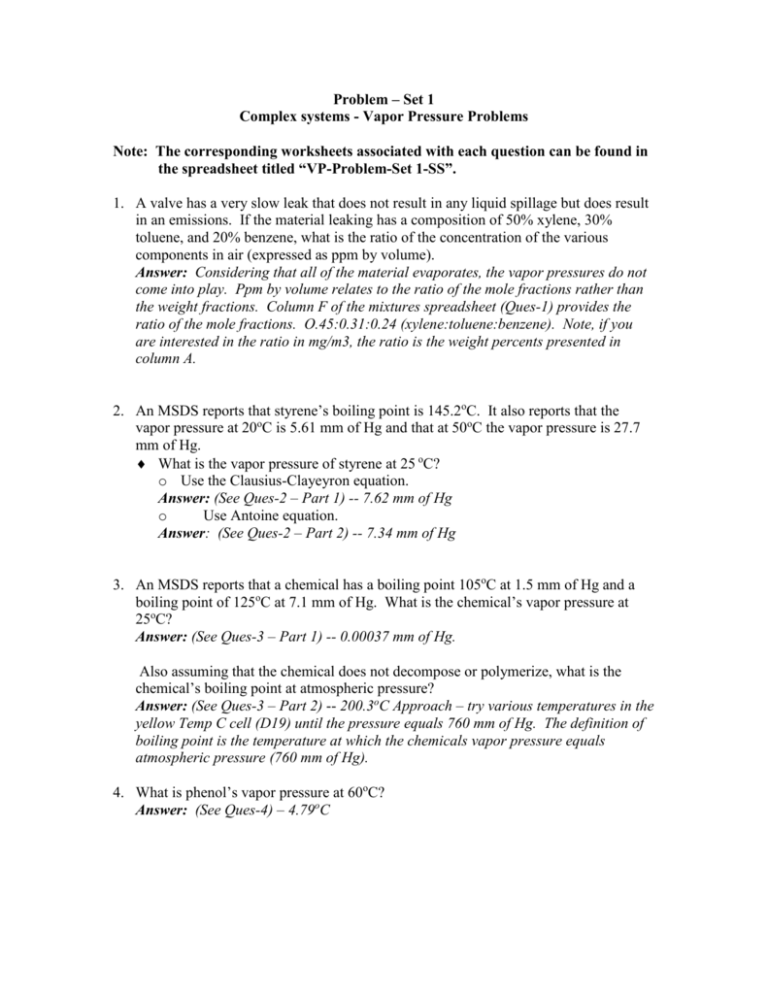
Problem – Set 1 Complex systems - Vapor Pressure Problems Note: The corresponding worksheets associated with each question can be found in the spreadsheet titled “VP-Problem-Set 1-SS”. 1. A valve has a very slow leak that does not result in any liquid spillage but does result in an emissions. If the material leaking has a composition of 50% xylene, 30% toluene, and 20% benzene, what is the ratio of the concentration of the various components in air (expressed as ppm by volume). Answer: Considering that all of the material evaporates, the vapor pressures do not come into play. Ppm by volume relates to the ratio of the mole fractions rather than the weight fractions. Column F of the mixtures spreadsheet (Ques-1) provides the ratio of the mole fractions. O.45:0.31:0.24 (xylene:toluene:benzene). Note, if you are interested in the ratio in mg/m3, the ratio is the weight percents presented in column A. 2. An MSDS reports that styrene’s boiling point is 145.2oC. It also reports that the vapor pressure at 20oC is 5.61 mm of Hg and that at 50oC the vapor pressure is 27.7 mm of Hg. What is the vapor pressure of styrene at 25 oC? o Use the Clausius-Clayeyron equation. Answer: (See Ques-2 – Part 1) -- 7.62 mm of Hg o Use Antoine equation. Answer: (See Ques-2 – Part 2) -- 7.34 mm of Hg 3. An MSDS reports that a chemical has a boiling point 105oC at 1.5 mm of Hg and a boiling point of 125oC at 7.1 mm of Hg. What is the chemical’s vapor pressure at 25oC? Answer: (See Ques-3 – Part 1) -- 0.00037 mm of Hg. Also assuming that the chemical does not decompose or polymerize, what is the chemical’s boiling point at atmospheric pressure? Answer: (See Ques-3 – Part 2) -- 200.3oC Approach – try various temperatures in the yellow Temp C cell (D19) until the pressure equals 760 mm of Hg. The definition of boiling point is the temperature at which the chemicals vapor pressure equals atmospheric pressure (760 mm of Hg). 4. What is phenol’s vapor pressure at 60oC? Answer: (See Ques-4) – 4.79oC
